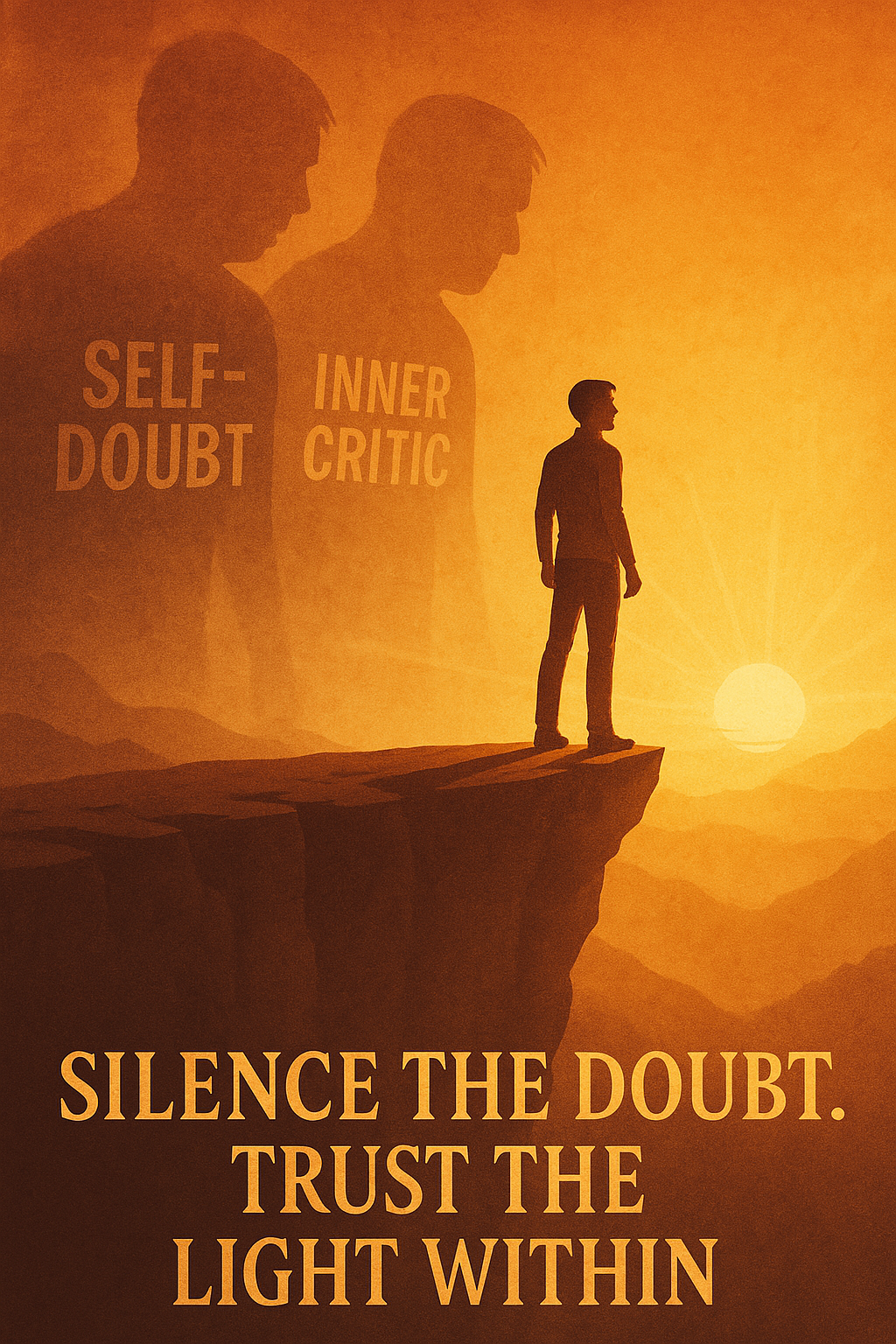"Silence the doubt. Trust the light within." — symbolizing inner strength and the journey toward self-belief.
Self-doubt is like a silent thief — it doesn’t steal your time, money, or possessions. It steals your potential. And often, it brings along its close friend: inner criticism. The voice inside that tells you, “You’re not good enough,” or “You’ll fail anyway, so why even try?”
But here’s the truth: You’re not alone. Every artist, teacher, entrepreneur, or student — at some point — has felt this inner resistance. The difference lies in how you deal with it.
Let’s explore some powerful ways to overcome self-doubt and silence that inner critic.
1. Recognize the Voice — But Don’t Believe It
That inner voice? It’s not always your enemy. It comes from your brain’s protective instincts. It wants to keep you safe from failure, embarrassment, or pain. But protection isn’t always progress.
Awareness is the first step.
Whenever that voice says, “You can’t,” pause and ask:
“Is this fear or fact?”
2. Question the Narrative
Self-doubt often comes from stories we’ve unconsciously repeated to ourselves:
“I’m not smart enough.”
“I’ve never done it before.”
“Others are better than me.”
Ask yourself:
Who told me this story — and why am I still believing it?
Challenge your limiting beliefs. Rewrite the narrative. You’re allowed to evolve.
3. Take Imperfect Action
Perfectionism is the mask that self-doubt wears. You wait for the perfect time, the perfect plan, or the perfect confidence — and end up doing nothing.
Truth bomb: Confidence comes from action, not the other way around.
Start small. Make mistakes. Learn. That’s how real confidence is born — not in theory, but in practice.
4. Remember Your Past Wins
When in doubt, look back. You’ve already overcome so much. Think of the exams you passed, the jobs you got, the heartbreaks you healed from.
“If I could survive that, I can handle this too.”
Keep a “Wins Journal” — no matter how small the win. Over time, it becomes proof that your doubts are often wrong.
5. Detach Your Worth from the Outcome
One of the deepest roots of self-doubt is the idea that failure = I’m not good enough.
But failure is just feedback.
You are not your results.
You are not your resume.
You are not your rejections.
Detach your self-worth from what happens outside you. Anchor it in who you are — not what you do.
6. Practice Self-Compassion
Speak to yourself the way you’d speak to your best friend.
You wouldn't say to them, “You're such a failure, you always mess up.”
Then why say that to yourself?
Self-compassion is not weakness. It's inner strength in its most graceful form.
7. Reflect Spiritually (Optional but Powerful)
From a deeper perspective — like in the Bhagavad Gita — the self is not the body, the mind, or the ego.
You are the observer — the eternal witness.
When you understand this, even the voice of doubt becomes just another cloud passing by. You are the sky — unchanged, undisturbed.
🔑 Final Thought:
Self-doubt may never fully disappear — and that’s okay. The goal isn’t to eliminate it, but to outgrow it.
You’re not here to be perfect.
You’re here to be real.
To try. To learn. To shine.
